Our Overarching Objectives are to…..
- Build the evidence base for communicating with disengaged audiences about the social and ethical implications of genetics.
- Enhance and evolve societal awareness of genomics and ethics of science globally, including diverse communities.
Ordinary people. Extraordinary science.
It is only human to question, to fear, to doubt, to distrust, to hesitate. It’s how we’re built. This is especially true when it comes to the science of human genetics and DNA, with its accompanying myths and monsters of data abuses, Franken-Science, eugenics and historic abuses of whole communities in search of ‘progress’.
Many communities are alienated by and distrustful of advances in medical science and research, especially those around DNA and genetics. For some, stories of unpleasant lived experiences and historic grievances against the medical and scientific worlds lie very close to the surface, with little required to trigger them. And more broadly, very few of the UK population feel actively connected to science and a third of the British public says they rarely or never talk to their family, friends or colleagues about it.



Just to make things worse, communication around the topic from the very organisations and institutions tasked with embedding a better and fairer health-care system into society can seem confused, or lacking in relevance or humanity at best, which simply exacerbates the issue.
This leaves us with a situation where the very people in society who could and should be benefiting most from advances in genetic medicines and treatment tend to close off or just reject them out of hand as ‘not for them.’
The outcome? An increasing imbalance in healthcare outcomes and a missed opportunity to impart the knowledge that might empower those communities to make more fully informed decisions when genetics does arise in their lives.
Genetic research, genomic medicine
Genomic medicine (the use of tests to predict, diagnose, treat, and prevent genetic conditions) is sweeping across our healthcare systems. And genetic databases that guide how these tests are interpreted, don’t represent all of society. So there is a social justice issue here – not everyone will reap the benefit of genomic medicine unless everyone has had a chance to discuss, think and reflect on what the science offers, how it is being used and how it should be shaped for the benefit of everyone.
The ultimate aim of the Only Human project is to figure out how to gently lift awareness of genomics across mainstream society, so that if and when people are ready to engage, they feel they have a choice and a voice. Awareness raising starts with good communication – and this has to involve compassion, empathy and a whole lot of listening.
Seeking Solutions
Only Human is an innovative exploratory research project that aims to understand if there are new, creative ways to:
Evolve societal awareness of genomics;
Start a conversation about genomics;
Explore some of the ethical issues associated with genomics;
Increase confidence in engaging with genomics;
Learn more about what trustworthy science looks like, from the publics’ perspective.
And finally, it would be helpful to understand if there are particular framings, tone, metaphor, memes, mechanisms that resonate with broad and specific public audiences. Go to The Films to see some of the creative assets we’ve already made; you’ll also have a chance to offer your feedback and thus you’ll be offering your voice into the research mix.
Creative Conversations
The Only Human project connects with a myriad of creative partners who will work to the same Insight Framework as described in our Evidence Base.
These experiments will include forays into film, Influencer innovation, gaming, TV programming, fashion and music events amongst others. Each will be evaluated both through qualitative and quantitative measures to provide feedback on how to improve what we’re doing, and also to enable us to know which ones work and which ones don’t. And crucially, we will be exploring which methods work, at scale.

